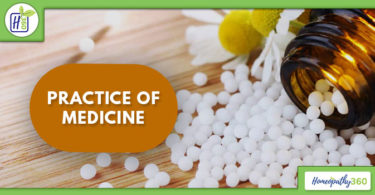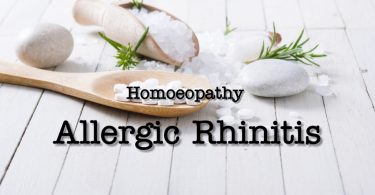Definition
Depression ( major depressive disorder or clinical depression) is a common but serious mood disorder.
It causes severe symptoms that affect how you feel, think and handle daily activities, such as sleeping eating or working .
To be diagnosed with depression, the symptoms must be present for at least two weeks .
Types of depression
Some forms of depression are slightly different, or they may develop under unique circumstances, such as ;
1) Persistent depressive disorder
2) Perinatal depression
3) Psychotic depression
4) Seasonal affective disorder
Ex : other type of depressive disorders newly added to the diagnostic classification of DSM – 5 include, disruptive mood dysregulation disorder ( diagnosed in children and adolescents ) and premenstrual dysphoric disorder ( PMOD )
Perinatal depression :
Is much more serious than the baby blues ( relatively mild depressive and anxiety symptoms that typically clear within two weeks after delivery ) that many women experience after giving birth .
Women with perinatal depression experience full – blown major depression during pregnancy or after delivery ( post partum depression ) . The feeling of extreme sadness anxiety and exhaustion that accompany perinatal depression may make it difficult for these new mother’s to complete daily care activities for themselves and or for their babies
Psychotic depression :
Occurs when a person has severe depression plus some form of psychosis such as having disturbing false fixed beliefs ( delusion ) or hearing or seeing upsetting things that other can not hear or see ( hallucination ) .
The psychotic symptoms typically have a depressive “theme”. Such as delusion of guilt, poverty or illness
Seasonal affective disorder :
Is characterized by the onset of depression during the winter months when there less sunlight (natural).
This depression generally lifts during spring and summer, winter depression. Typically accompanied by social withdrawal. Increased sleep and weight gain. Predictably returns every year in seasonal affective disorder.
Bipolar disorder :
Is different from depression , but it is included in this list is because someone with bipolar disorder. Experiences episodes of extremely low moods that meet the criteria for major depression ( called bipolar depression ). But a person with bipolar disorder also experiences extreme high euphoric or irritable moods called “mania” or a less severe from called “ hypomania”.
Signs and symptoms :
If you have been experiencing some of the following sign and symptoms most of the day, nearly every day for at least two weeks you may be suffering from depression.
Aches or pains, headache, cramps or digestive problems which a clear physical cause and / or that do not easy even which treatment.
Persistent sad, anxious or empty mood.
Feeling of hopelessness or pessimism.
Irritability.
Feeling of guilt, worthlessness or helplessness.
Loss of interest or pleasure in hobbies and activities.
Decrease energy or fatigue.
Moving or talking more slowly.
Feeling restless or having trouble sitting still.
Difficulty in concentrating, remembering or making decisions.
Difficulty in sleeping, early morning awakening or over sleeping.
Appetite and / or weight changes.
Thoughts of death or suicide or suicide attempt.
Risk factors :
Personal or family history of depression.
Major life changes, trauma or stress.
Certain physical illness and medication.
Treatment and therapies :
Depression, even the most severe cause can be treated.
The earlier that treatment can began the more effective it is.
Depression is usually treated with ……..
Medication .
Psychotherapy.
A combination of the two.
Electro convulsive therapy ( ECT ) .
Repetitive transcranial magnetic stimulation ( RTMS ).
Beyond treatment : Things you can do :
Here are other tips that may help you or loved one during treatment for depression.
Try to be active and exercise.
Set realistic goals for your self.
Try to spend time with other people and confide with In a trusted friend or relative.
Try not to isolate your self, and let others help you.
Expect your mood to improve gradually not immediately.
Post pone important decisions, such as getting married or divorced or changing jobs untill you feel better.
Discuss decisions with others who knows you well and have a more objective view of your situation.
Continue to educate yourself about depression.
Related condition :
Peripartum depression ( previously post partum depression ).
Seasonal depression ( also called seasonal affective disorder).
Persistent depression ( previously dysthymia).
Premenstrual dysphoric disorder.
Disruptive mood dysregulation disorder.
Bipolar disorder.
Homoeopathic remedies used in the treatment of depression :
Arsenic album :
It is natural medicine to cure the extreme problem of distress, in particular for those that obsess about health and look for perfection in everything.
They are often depressed when they fail to reach lofty personal standards.
Aurum metallicum :
It is best for the workaholic people with a tendency of worthless, distress and aroused feeling of self destruction after a defect in a job or their personal life.
Calcarea carbonica :
When people become confused with work, take tension from their job profile this medicine affects a lot.
At the time a person may develop tiredness, worry, self pity, sadness and confusion.
It is helpful for individuals who suffer from insomnia and periods of laziness.
Causticum :
When a person mourns for the loss becomes across forgetfulness, contact crying for hours, and mental boredom.
These people at particular time feel sympathetic toward or they can have an annoyed and pessimistic out look towards everything around.
Ignatia Amara :
Ignatia is a good for sensitive people that tend to overwhelm frustration or painful thoughts.
These people do not want to appear as helplessness irritable and moody individuals in the eyes of others.
At times they may laugh out loudly or cry which any reason.
Kali phosphoricum :
When a person is under going a regular treatment with Kali phosphoricum it means he has feelings of depression.
These feelings of tension or emotional incident are occurring continuously with agitation, fatigue, lack of attention, headache, insomnia and anemia.
Netrum carbonicum :
The people who are sensitive and patient by nature but at times try to avoid conflict and usually becomes depressed after some incidence of failure.
They also feel lonely, become isolated, withdraw themselves from the outside word and listen to sad music.
Pulsetilla negricans :
It is one of the best homoeopathic medicines for depression. When the people weep and feel blue .
At this time they need lots of encouragement and recognition in short, they are moody, jealous and whiny other than pulsetilla their mood improves with a walk in the fresh air or cry.
Sepia :
Sepia is the best medicine if a person wants to be alone and may become angry when other people show their sadness, they may feel better after crying and they prefer not to sympathize
Natrum muriaticum :
If a person requires natrum muriaticum it means he often cover his inner feelings such as anger, fear of misfortune, grief or romantic attachment for something.
These people are reserved and they look for solitude around them.





